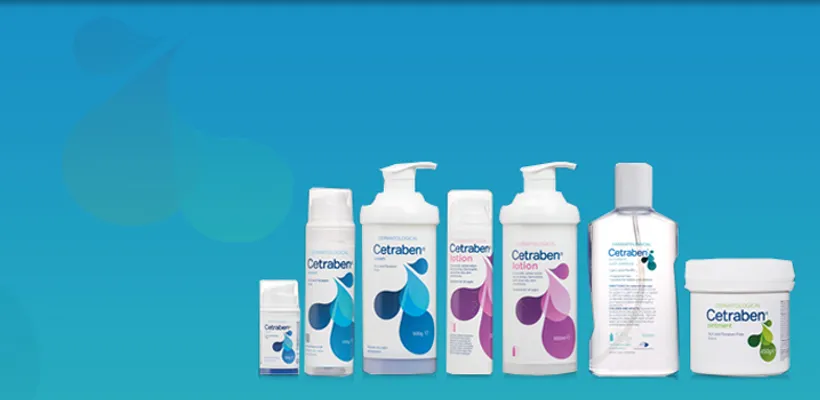Cetraben - Everything You Need To Know

Cetraben is a range of products designed to help manage dry, itch, and eczema-prone skin by locking in moisture and creating a protective barrier on the skin in order to keep out irritants. Your skin has a natural lipid layer which locks in water and prevents any nastiness getting into your skin cells and causing irritation. Those suffering with dry-skin conditions often suffer with low lipid production, which can be due to things such as diet, environment, or stress. With lower lipid levels irritants are able to get into your skin and cause irritation; Cetraben works by helping to replace some of the lost lipids on the skin's surface, while also creating a secondary barrier of paraffin to lock in moisture and keep out nasty irritants.
What is an emollient?
An emollient is a moisturiser of sorts, for extremely dry skin. Emollients will help to prevent too much moisture from leaving your skin and will replace the natural oils lost with oils contained in the emollient. Products such as Cetraben contain active ingredients like Light Liquid Paraffin, White soft Paraffin, and Glycerin, all known as emollients. These ingredients help to replace lost skin oils, bring moisture from deep down in the skin, and form a protective barrier on the skin surface.
How to use Cetraben
The Cetraben cream, lotion, and ointment products all apply in a similar, simple way. Apply product liberally to the affected skin, ensuring that the area is well covered. Make sure to apply the product gently and in the direction of the hair growth. Avoid rubbing the cream vigorously as this could trigger itching, create more heat on the skin, or cause pore blockages. Apply products to the skin as often as required or as directed by your doctor/pharmacist to ensure continued hydration throughout the day. It is recommended that you use Cetraben as frequently as possible, or as a minimum at least twice a day. You should also apply the emollient before and after bathing, in order to protect your skin from dryness.
What to avoid
Do not use Cetraben if allergic to any of the ingredients, if irritation occurs cease use immediately; mild skin reactions, however, have been seen very rarely. Take special care when using Cetraben bath additive as it makes skin and surfaces slippery, be careful not to slip when entering or leaving the bath. Avoid contact with eyes, if contact occurs wash out thoroughly with water.
Cetraben is not known to be harmful if used during pregnancy or breastfeeding, however it is advised to remove any residue from the breasts before feeding. If you are unsure whether you are able to use Cetraben or not talk to your doctor or pharmacist as soon as possible.